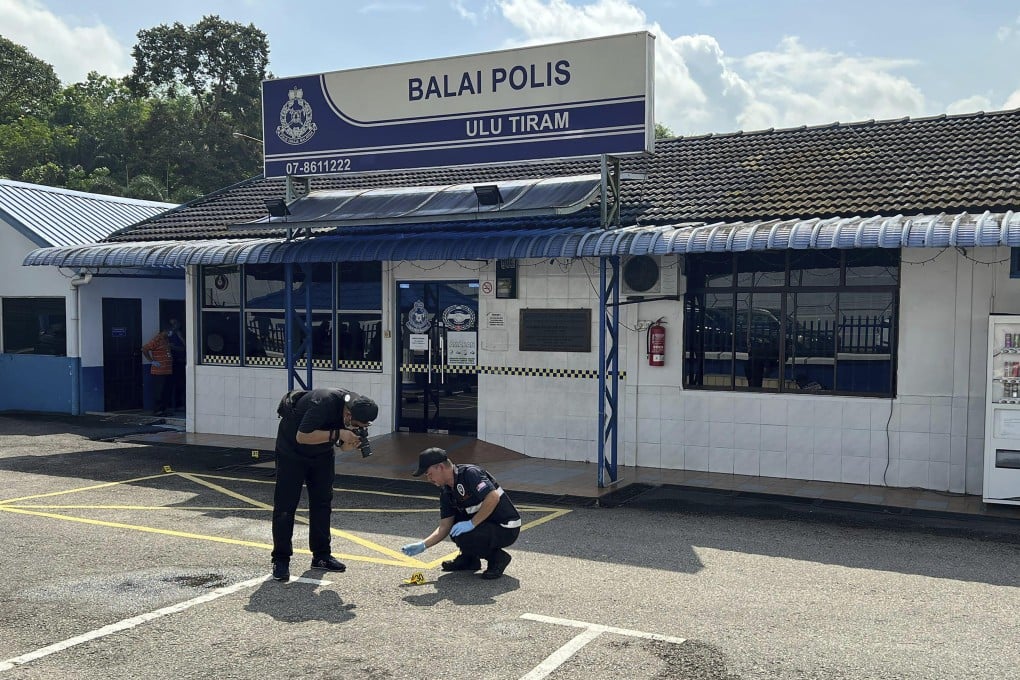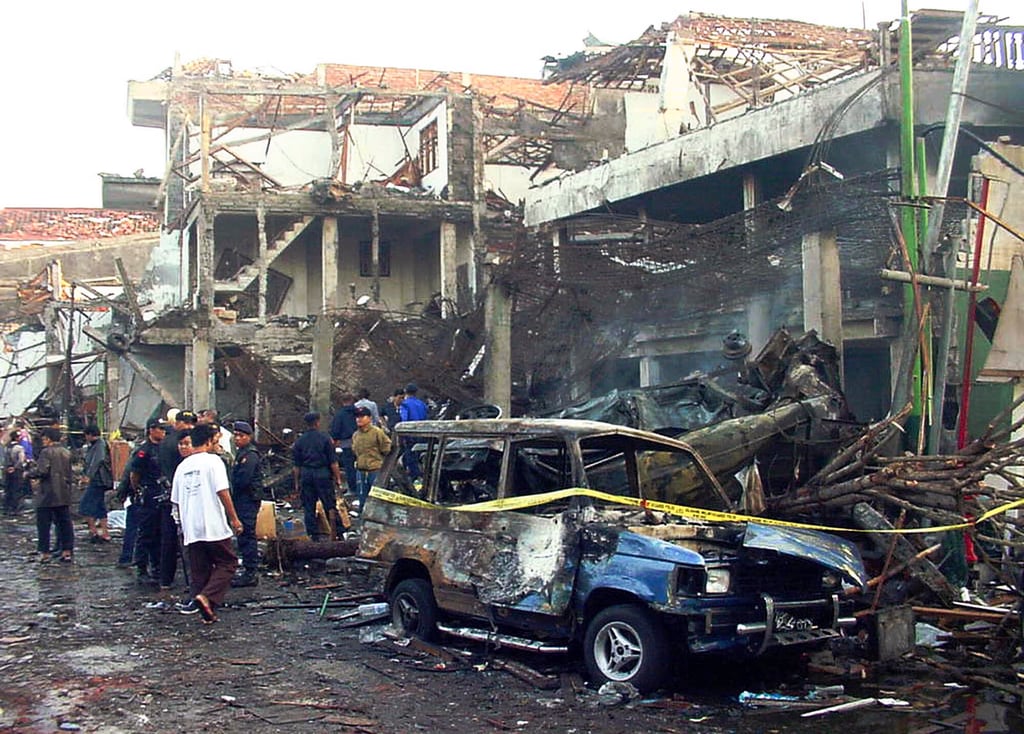Malaysia’s Isis sympathisers draw focus after deadly Ulu Tiram attack
- Initial reports linked al-Qaeda affiliate Jemaah Islamiah to Friday’s ‘lone wolf’ attack on a Johor Bahru police station that killed two officers
- But extremism experts and former militants say young Southeast Asians ‘lurking in cyberspace’ prefer to join pro-Islamic State groups

The 21-year-old attacker who killed two policemen in the Johor Bahru suburb of Ulu Tiram on Friday was shot dead at the scene. He was reportedly buried on Monday in an isolated grave as a mark of condemnation, in accordance with instructions from the state’s fatwa committee.
Radicalised students from the school have since spread out across Southeast Asia, according to Benny Mamoto, a retired Indonesian police general who investigated the Bali bombings. Local media reported on Tuesday that authorities were considering demolishing the school building, with the head of the local religious affairs committee saying he had received complaints that it was still in operation, despite the building no longer being in use.

Malaysian police initially identified the suspect in Friday’s attack as a member of JI. But on Sunday, Home Minister Saifuddin Nasution described it as “a lone wolf attack” unrelated “to some big overall mission or a dangerous group”.